Doosan announces fuel cell collaboration with SK Energy
Doosan Fuel Cell Co. will be working together with SK Energy Co. in the hydrogen business. To this end, the US managing director of Doosan Fuel Cell has been appointed as the new CEO. Doosan Fuel Cell is a subsidiary of the South Korean Doosan Group, SK Energy an affiliate of the refinery company SK Innovation. The two companies entered into a related agreement at the end of October to develop fuel cells and expand this business model, Pulsenews Korea reports. Fuel cells and related components may fall under one of the many Korea certifications designed to ensure the safety and quality of products to be imported into Korea.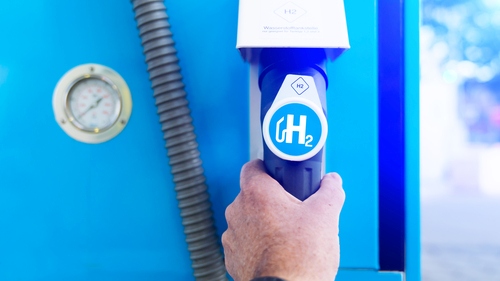 According to the agreement, Doosan Fuel Cell will be involved in the further development of fuel cells and automotive batteries, while SK Energy is responsible for a development project on the purification and refining of hydrogen for use in motor vehicles. In addition, the partners will work on the construction of so-called “green” fuel stations. These will be used to refuel with hydrogen and generate energy at the same time. The first filling station of this kind is to be built at the beginning of next year. The first meeting of the two companies to exchange technologies also took place in October at Doosan’s fuel cell plant in Iksan, North Jeolla Province.
South Korea is considered one of the most important and innovative industrial nations in the world. To gain market access to this highly technological country, products imported into South Korea must be tested and certified. The KC mark or certificate is roughly equivalent to the European CE mark and applies to 730 different products. MPR International GmbH has solid experience in Korea certification and competent local partners. We will be pleased to advise you without obligation about the scope and procedure of a Korea certification.
If you need assistance or have any questions regarding Korean certifications like KC, KC EMC, KCs or KCs for explosion safety products, feel free to contact us any time.
Tel.: +49-69-2713769259
Email: info@korea-certification.com
Urgent questions?
Please do not hesitate to contact us via chat. You will find the chat window at the bottom right of each page (if this is not visible, please check your browser settings).
For more information you can download our free brochure “Korea Certification Made Easy – The Booklet“.
According to the agreement, Doosan Fuel Cell will be involved in the further development of fuel cells and automotive batteries, while SK Energy is responsible for a development project on the purification and refining of hydrogen for use in motor vehicles. In addition, the partners will work on the construction of so-called “green” fuel stations. These will be used to refuel with hydrogen and generate energy at the same time. The first filling station of this kind is to be built at the beginning of next year. The first meeting of the two companies to exchange technologies also took place in October at Doosan’s fuel cell plant in Iksan, North Jeolla Province.
South Korea is considered one of the most important and innovative industrial nations in the world. To gain market access to this highly technological country, products imported into South Korea must be tested and certified. The KC mark or certificate is roughly equivalent to the European CE mark and applies to 730 different products. MPR International GmbH has solid experience in Korea certification and competent local partners. We will be pleased to advise you without obligation about the scope and procedure of a Korea certification.
If you need assistance or have any questions regarding Korean certifications like KC, KC EMC, KCs or KCs for explosion safety products, feel free to contact us any time.
Tel.: +49-69-2713769259
Email: info@korea-certification.com
Urgent questions?
Please do not hesitate to contact us via chat. You will find the chat window at the bottom right of each page (if this is not visible, please check your browser settings).
For more information you can download our free brochure “Korea Certification Made Easy – The Booklet“.
Korean Authorities Closed During New Year
Several Korean authorities and certification institutions will be closed for Christmas and New Year Holidays. The holidays will be on December 25, 2021 and on January 01, 2022 respectively. This year, the New Year’s Eve falls on a weekend, so the authorities will resume their work from 03 January 2022. In Korea, New Year’s Eve is celebrated more quietly in comparison to the Korean New Year celebrations. The Korean New Year’s Day which is calculated according to the Chinese lunar calendar will start in beginning of February for 2022. We will inform you about the exact days when the authorities will close for the Spring Festival when we get the official notice. Due to the closing delays in the certification process may occur.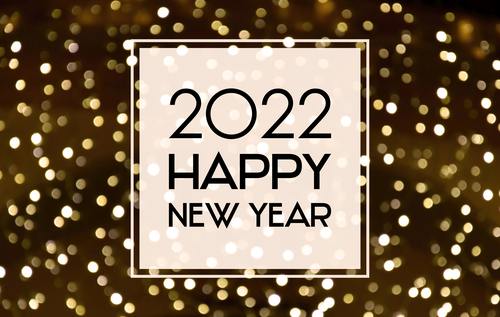 MPR International GmbH will continue to support you in your certification processes. If you would like to have products checked for KC-, KC EMC-, KCs-, KEMCO or other certifications, you can call or email us any time.
Please do not hesitate to contact us for further details and consultation. You can contact us via e-mail, or call us (UK: +44 2071931135, Rest of Europe: +49 69 2713769259, US: +1 773 654-2673).
If you have any questions you can also use our chat-window in the bottom right. (Please check your browser settings if you can’t see the window)
MPR International GmbH wishes you a succesfull New Year 2022!
MPR International GmbH will continue to support you in your certification processes. If you would like to have products checked for KC-, KC EMC-, KCs-, KEMCO or other certifications, you can call or email us any time.
Please do not hesitate to contact us for further details and consultation. You can contact us via e-mail, or call us (UK: +44 2071931135, Rest of Europe: +49 69 2713769259, US: +1 773 654-2673).
If you have any questions you can also use our chat-window in the bottom right. (Please check your browser settings if you can’t see the window)
MPR International GmbH wishes you a succesfull New Year 2022!
Successful Conclusion of 2021
The MPR Group looks back on an extremely successful 2021, even with the ongoing Covid-19 challenges. Many of our clients had to deal with delivery bottlenecks, high shipping costs and material shortages. Looking back, we can say that our clients overcame these hurdles very professionally and were still able to complete all projects successfully. Thanks to our clients and our motivated staff working hand in hand, there were no critical delays in our certification projects.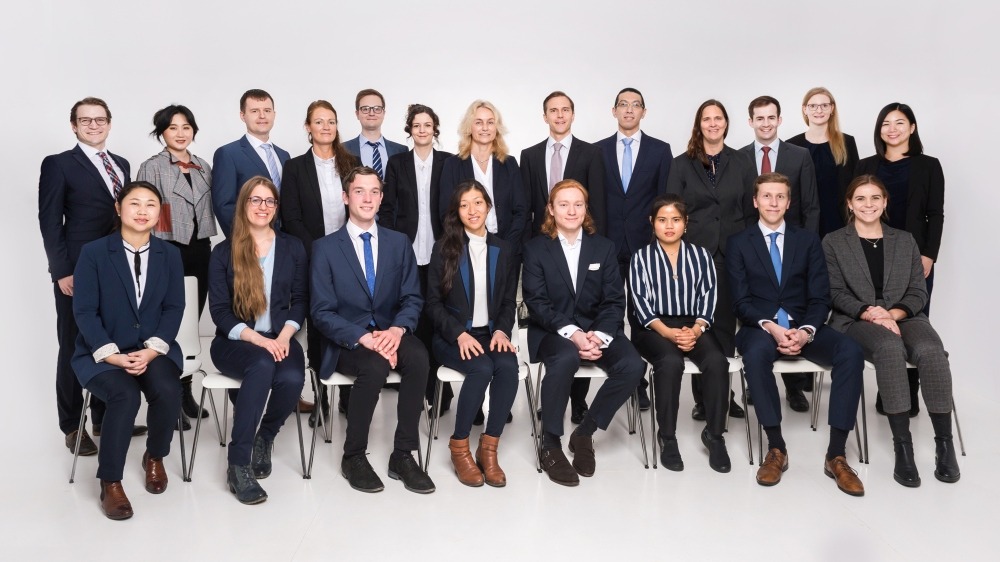 Our direct contacts within the certification authorities and testing laboratories in Asia have allowed us to continue to offer expedited services and certification completions comparable to pre-pandemic times. The pandemic changed the certification process due to travel restrictions, temporary shutdowns and customs delays. Fortunately, we were able to work with our clients, the test labs and the certification authorities to adapt and coordinate alternative methods and processes to meet our clients’ crucial deadlines. In many cases, the factory audits were carried out remotely and the exchange of information with the test laboratories was adjusted accordingly.
From the beginning of the pandemic MPR Group hired additional staff, invested in IT infrastructure, implemented remote work from home and mapped out alternative plans to optimize capacities for the additional workload of the new processes of certifications. The planning paid off and allowed us to offer our clients the efficient, seamless process they have come to expect from us. The consistent switch to working from home and the implementation of technical systems required for this were implemented very quickly and has proven successful. All certification projects are accompanied by an individual contact person who is replaced by a permanent representative in case of absence. This guarantees our clients continuous availability and a consistently high quality of service.
We are very happy that in the end we did not get into the situation of having to carry out any substitutions due to illness, and that our masking, safe-distance and hygiene measures worked well, and we did not have a single Covid-19 infection transmitted among colleagues during the entire pandemic.
In the meantime, our employees were able to take advantage of the vaccination and everyone in our offices is fully vaccinated or recovered from Covid-19.
The MPR Group wishes all employees, clients, family and suppliers a relaxing holiday season and a great start into the new year!
Our direct contacts within the certification authorities and testing laboratories in Asia have allowed us to continue to offer expedited services and certification completions comparable to pre-pandemic times. The pandemic changed the certification process due to travel restrictions, temporary shutdowns and customs delays. Fortunately, we were able to work with our clients, the test labs and the certification authorities to adapt and coordinate alternative methods and processes to meet our clients’ crucial deadlines. In many cases, the factory audits were carried out remotely and the exchange of information with the test laboratories was adjusted accordingly.
From the beginning of the pandemic MPR Group hired additional staff, invested in IT infrastructure, implemented remote work from home and mapped out alternative plans to optimize capacities for the additional workload of the new processes of certifications. The planning paid off and allowed us to offer our clients the efficient, seamless process they have come to expect from us. The consistent switch to working from home and the implementation of technical systems required for this were implemented very quickly and has proven successful. All certification projects are accompanied by an individual contact person who is replaced by a permanent representative in case of absence. This guarantees our clients continuous availability and a consistently high quality of service.
We are very happy that in the end we did not get into the situation of having to carry out any substitutions due to illness, and that our masking, safe-distance and hygiene measures worked well, and we did not have a single Covid-19 infection transmitted among colleagues during the entire pandemic.
In the meantime, our employees were able to take advantage of the vaccination and everyone in our offices is fully vaccinated or recovered from Covid-19.
The MPR Group wishes all employees, clients, family and suppliers a relaxing holiday season and a great start into the new year!
SK Group to invest around 12 billion US dollars in “green” industries by 2025
South Korea’s third-largest conglomerate SK Group plans to invest around 12 billion US dollars in so-called green industries over the next five years. This is the company’s response to the growing awareness of the global climate crisis and its attempt to expand its business areas into environmentally friendly industries. Pulsenews Korea reported in mid-October that the investment will be made through the corresponding subsidiary SK Inc. Within the group of companies, the equivalent of 7.9 billion US dollars is to be invested in alternative energy, 3.3 billion US dollars in clean industrial processes, 504 billion US dollars in CO₂ processing and 260 million US dollars in sustainable food. The potential growth of the green industry sector would mean greater demand for solar and wind power equipment, among others, much of whose production requires KC certification and KC certification for explosive products.
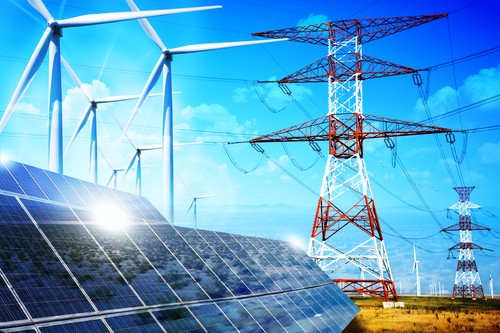
A previously published announcement by SK Group to invest around 15.5 billion US dollars in hydrogen technologies referred to joint financing by SK and external partners. The now announced investment in the green sector will be done completely independently by SK. Senior Vice President of SK’s Green Investment Centre Kim Moo-hwan said the group has already invested the equivalent of US$2.27 billion in green industries this year. Of all industries, SK has the most interest in alternative energy. These include hydrogen and fuel cells, energy distribution and renewable energy. Experts estimate that the global alternative energy market will double by 2025. In addition, SK is expanding its involvement in sustainable foods such as meat alternatives, lab-grown meat and protein from microbial fermentation.
South Korea is considered one of the most important and innovative industrial nations in the world. To gain market access to this highly technological country, products imported into South Korea must be tested and certified. The KC mark or certificate is roughly equivalent to the European CE mark and applies to 730 different products. MPR International GmbH has solid experience in Korea certification and competent local partners. We will be pleased to advise you without obligation about the scope and procedure of a Korea certification.
If you need assistance or have any questions regarding Korean certifications like KC, KC EMC, KCs or KCs for explosion safety products, feel free to contact us any time.
Tel.: +49-69-2713769259
Email: info@korea-certification.com
Urgent questions?
Please do not hesitate to contact us via chat. You will find the chat window at the bottom right of each page (if this is not visible, please check your browser settings).
For more information you can download our free brochure “Korea Certification Made Easy – The Booklet“.
Sales of eco-cars in South Korea pass 200,000 mark
The number of eco-friendly vehicles sold in South Korea passed the important 200,000-unit mark for the first time in September, Pulsenews reports. Thanks to generous government subsidies and infrastructure expansion, electric vehicles now account for 15 per cent of all newly registered passenger cars. According to data analysed by local market tracker Car is You Data Research, the number of newly registered electric vehicles between January and September is 202,536 units. The total share of EVs measured by registration figures is 15.6 per cent, an increase of 4.7 per cent compared to the same period last year. This is the highest share to date since the first electric car was launched in 2013. The total number of EVs reached 100,000 in May 2020. For the production of eco cars, the import of materials, components and equipment is very important. In this regard, most products must undergo KC certification in order to be approved for the Korean market.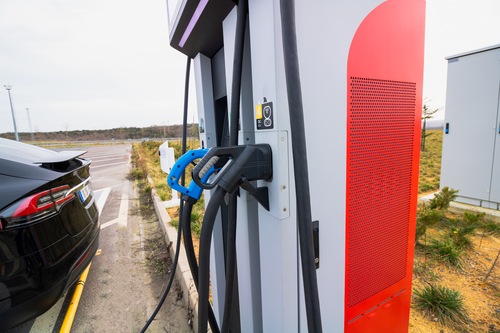 Sales figures for each category, hybrids and pure EVs were 133,513 and 69,023 respectively at the end of September, up 31.5 and 94 per cent year-on-year. The most popular brand for EVs in South Korea was Hyundai with 76,786 vehicles sold followed by Kia with 75,533. Imported vehicles from different manufacturers such as Mercedes-Benz, BMW and Volvo were together around 10,000 vehicles. Experts expect sales figures to increase further in the coming months as manufacturers launch numerous new models in the fourth quarter. Analysts attribute the rise in EV sales largely to generous government subsidies for environmentally friendly vehicles and increased investment by carmakers to build more charging stations.
South Korea is considered one of the most important and innovative industrial nations in the world. To gain market access to this highly technological country, products imported into South Korea must be tested and certified. The KC mark or certificate is roughly equivalent to the European CE mark and applies to 730 different products. MPR International GmbH has solid experience in Korea certification and competent local partners. We will be pleased to advise you without obligation about the scope and procedure of a Korea certification.
If you need assistance or have any questions regarding Korean certifications like KC, KC EMC, KCs or KCs for explosion safety products, feel free to contact us any time.
Tel.: +49-69-2713769259
Email: info@korea-certification.com
Urgent questions?
Please do not hesitate to contact us via chat. You will find the chat window at the bottom right of each page (if this is not visible, please check your browser settings).
For more information you can download our free brochure “Korea Certification Made Easy – The Booklet“.
Sales figures for each category, hybrids and pure EVs were 133,513 and 69,023 respectively at the end of September, up 31.5 and 94 per cent year-on-year. The most popular brand for EVs in South Korea was Hyundai with 76,786 vehicles sold followed by Kia with 75,533. Imported vehicles from different manufacturers such as Mercedes-Benz, BMW and Volvo were together around 10,000 vehicles. Experts expect sales figures to increase further in the coming months as manufacturers launch numerous new models in the fourth quarter. Analysts attribute the rise in EV sales largely to generous government subsidies for environmentally friendly vehicles and increased investment by carmakers to build more charging stations.
South Korea is considered one of the most important and innovative industrial nations in the world. To gain market access to this highly technological country, products imported into South Korea must be tested and certified. The KC mark or certificate is roughly equivalent to the European CE mark and applies to 730 different products. MPR International GmbH has solid experience in Korea certification and competent local partners. We will be pleased to advise you without obligation about the scope and procedure of a Korea certification.
If you need assistance or have any questions regarding Korean certifications like KC, KC EMC, KCs or KCs for explosion safety products, feel free to contact us any time.
Tel.: +49-69-2713769259
Email: info@korea-certification.com
Urgent questions?
Please do not hesitate to contact us via chat. You will find the chat window at the bottom right of each page (if this is not visible, please check your browser settings).
For more information you can download our free brochure “Korea Certification Made Easy – The Booklet“.



